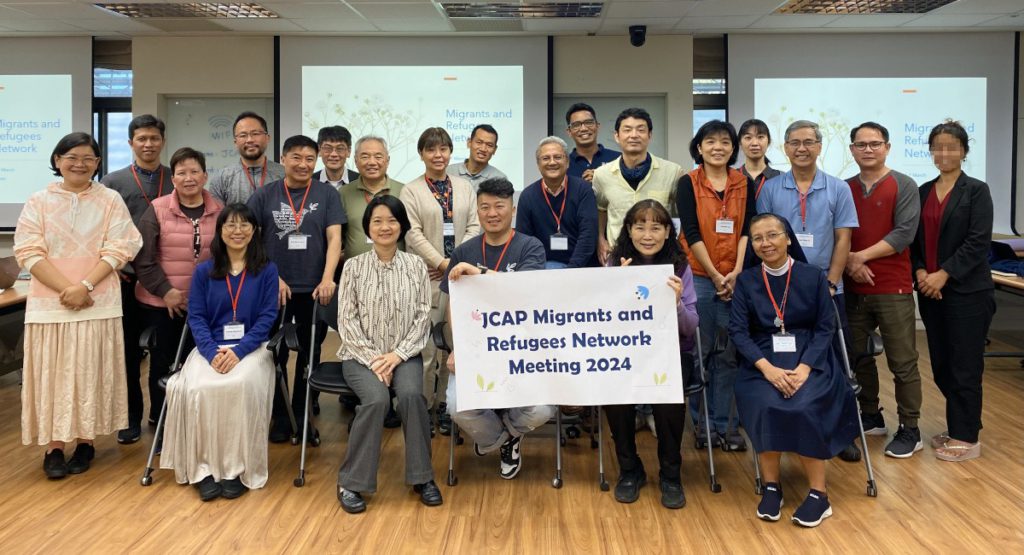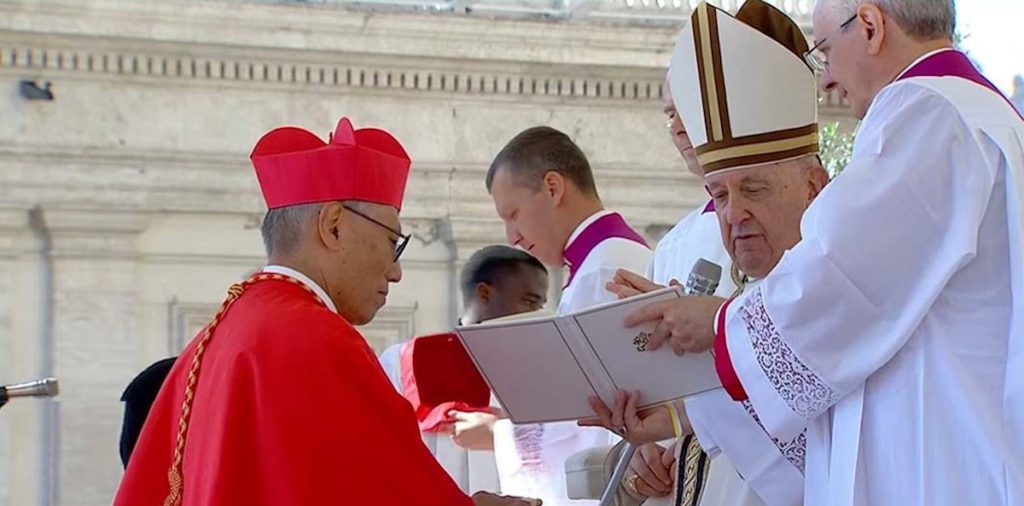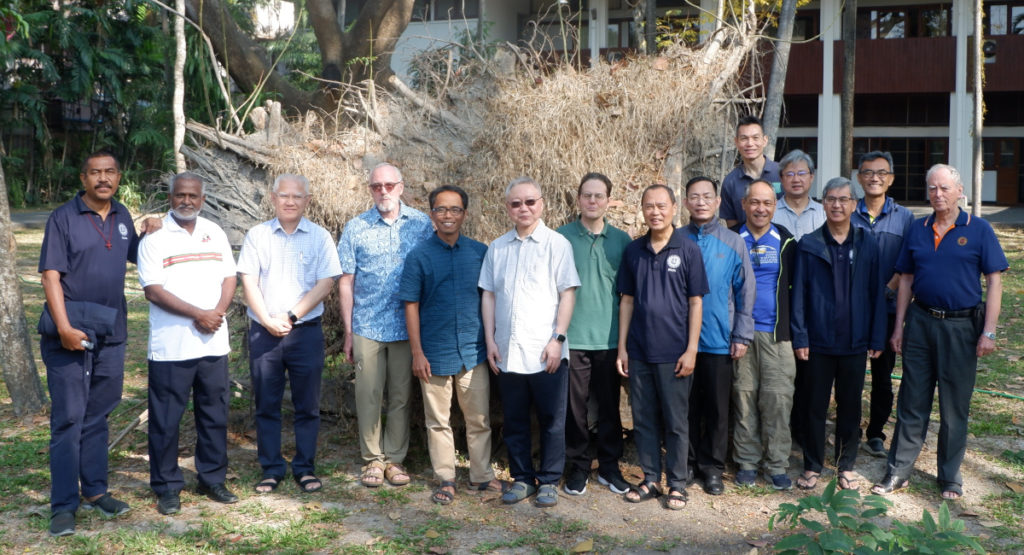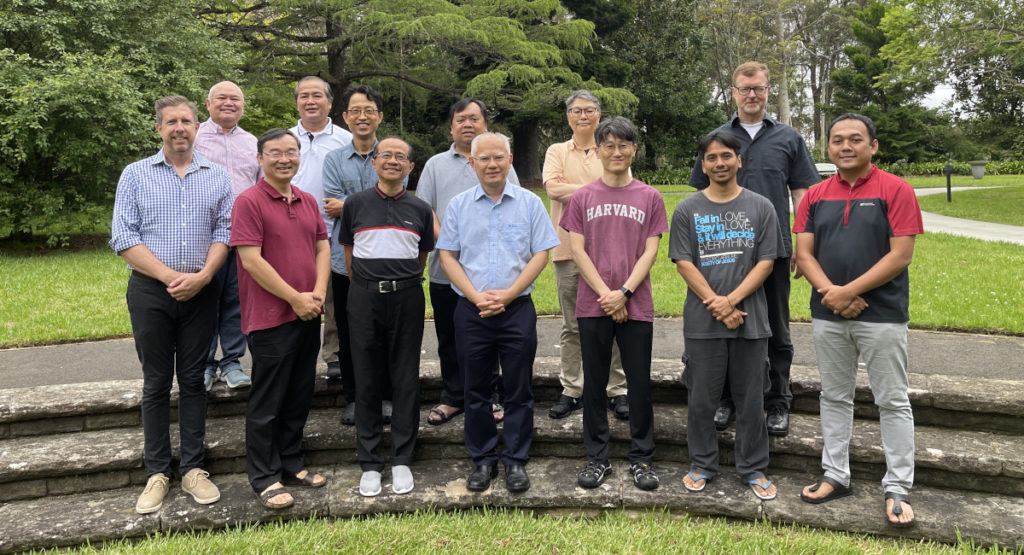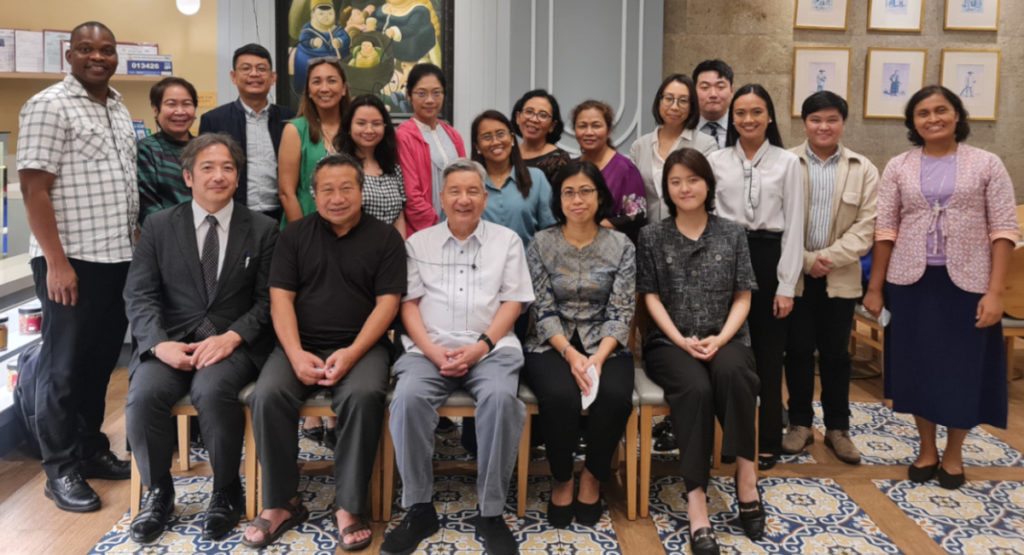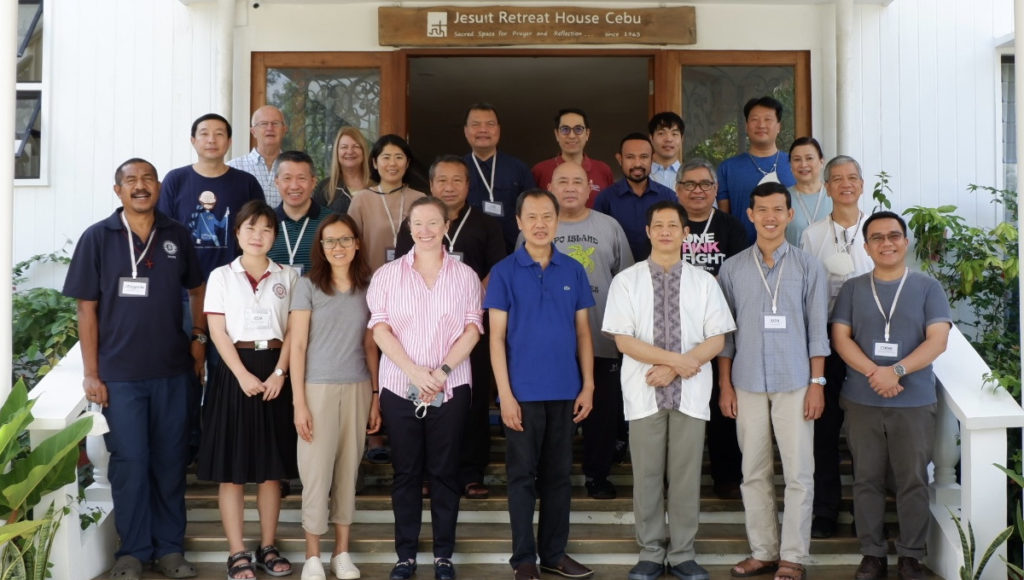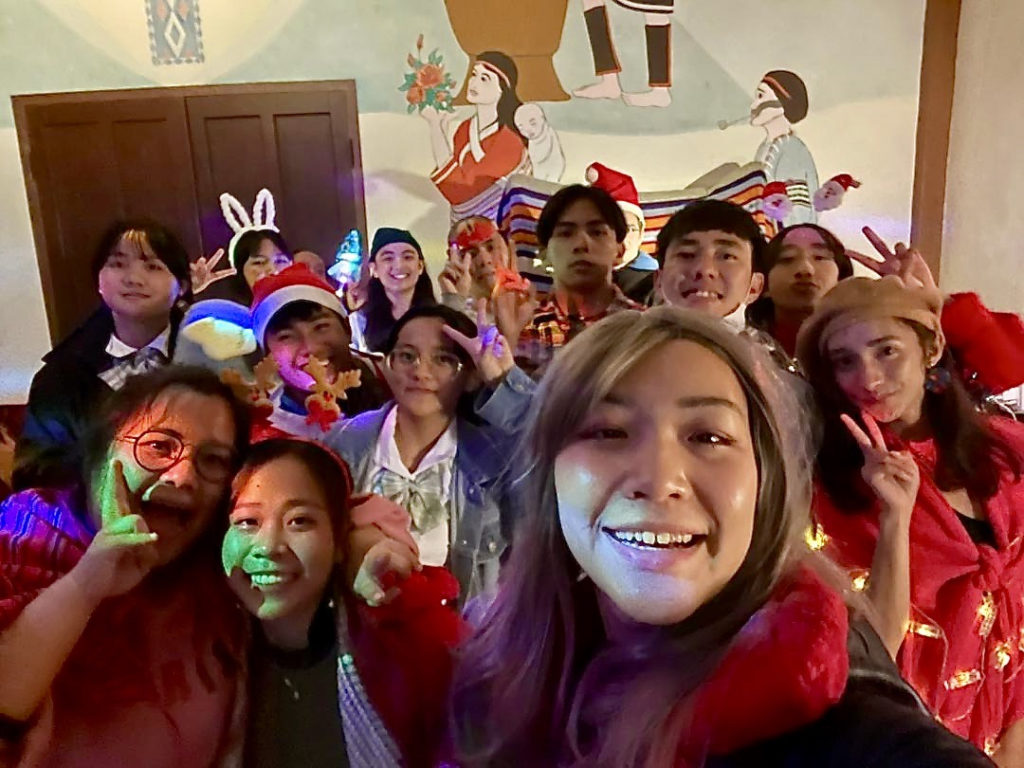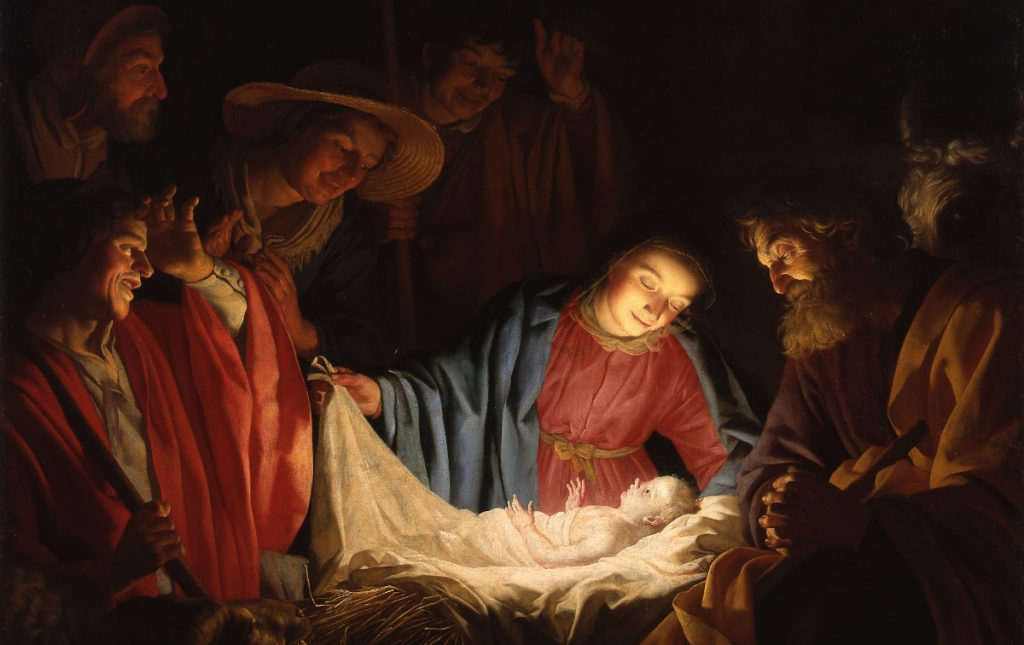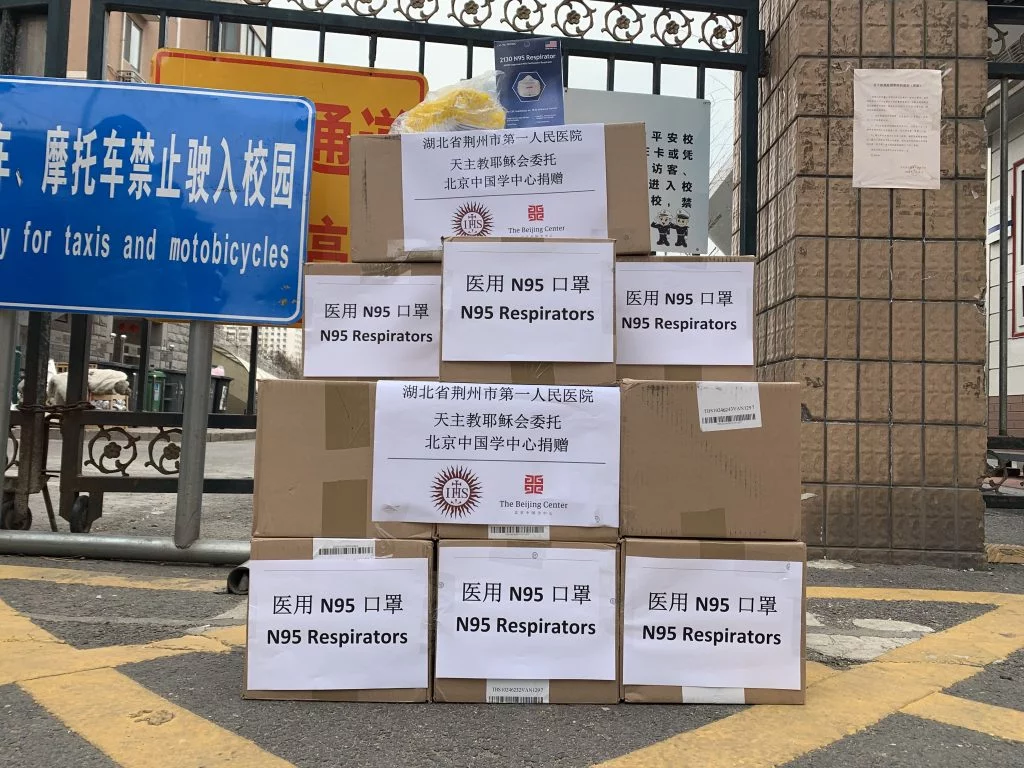The Migrants and Refugees Network of the Jesuit Conference of Asia Pacific (JCAP) is made up of active and dedicated people working in this Jesuit ministry. Continue reading “A harbour of friendship amid tumultuous seas”
A harbour of friendship amid tumultuous seas
Bishop Stephen Chow SJ elevated to cardinal
Bishop Stephen Chow SJ of Hong Kong was among 21 bishops raised to the rank of cardinal by Pope Francis during a ceremony at St Peter’s Square in Vatican City on 30 September. Continue reading “Bishop Stephen Chow SJ elevated to cardinal”
A time of hope and change
Fr Tony Moreno SJ, President of the Jesuit Conference of Asia Pacific, called the recent assembly of major superiors a “historic” one. Continue reading “A time of hope and change”
Defining the work of safeguarding
It was a full week of rich sharing and learning for the Safety in Ministry network as they met face to face at St Peter Canisius House in Pymble, New South Wales from 22 to 28 January. Continue reading “Defining the work of safeguarding”
Working and walking together as members of the “Jesuit” body of higher education
I attended for the first time the gathering of the International Networking Officers of the Association of Jesuit Colleges and Universities – Asia Pacific Continue reading “Working and walking together as members of the “Jesuit” body of higher education”
The joy of giving
“You can’t have a long face and be a development officer.” These words from Jesuit Conference of Asia Pacific (JCAP) President Fr Tony Moreno SJ certainly proved Continue reading “The joy of giving”
Celebrating love and diversity among indigenous youth
This pandemic has inevitably changed the way we celebrate. Physical gatherings are risky, potential super spreader events where people might catch the virus. The next best thing is to take the celebration online: Zoom parties are the norm these days. And while a virtual celebration is certainly different, we do what we can to stay connected.
Last December, two indigenous youth groups–one from the southern Philippines (Bukidnon, Davao, and Culion) and another from the small village of Chingchuan in Hsinchu County, Taiwan–met online for a Christmas celebration organised by the Jesuits working in indigenous ministry. Despite the geographical distance, language barriers and technical difficulties, the youthful energy and spirit of sharing pervaded over the gathering. As Conference President Fr Tony Moreno SJ noted in his message to the group, it was “the only network within the Jesuit Conference of Asia Pacific to have a Christmas celebration”. This was a true example of how the joy and enthusiasm of the youth, no matter what obstacles they face in life, cannot be extinguished. As Abegelle, a Food Technology student from Bukidnon State University put it, they are “divided by distance, united by the love and hope of our tribes”.
Fr Ambrosio Flores SJ, coordinator for the Jesuit Companions in Indigenous Ministry (JCIM), and Fr Barry Martinson SJ, a pioneer in this ministry and parish priest in Chingchuan, steered the participants to put together a programme centred on sharing–their identities as indigenous youth, as students, and as talented young people with bright futures ahead. From the livestream in Malaybalay, students from the seven tribes of Bukidnon were resplendent in their multi-coloured traditional clothing. Representatives from the Tagbanua tribe in the island of Culion and the Ateneo Lumad Students Association from Davao also participated.
Meanwhile in Taiwan, the lively group of Ayatal youth–all in high spirits from celebrating their Christmas party in the village church earlier that same evening–were bundled up in winter clothing, some wearing Santa hats and holiday accessories. They all had the chance to introduce themselves to each other. Fr Martinson emphasised using song and dance in the programme, which is universally appealing and easy to translate, as English was not spoken by everyone. The presentations were as diverse as the performers: from indigenous Ayatal songs, to traditional Filipino kundiman (love song) accompanied by acoustic guitar, from original rock ballads with full band to classic Christmas carols–and of course, dancing–the spirit of sharing their talents and expressions of joy for the season were palpable.
JCIM has done over two decades of apostolic work with communities all over Asia Pacific–aside from the Philippines and Taiwan, also Australia, Timor-Leste, Indonesia, Malaysia, Thailand, Vietnam, Laos, Myanmar, and Cambodia–and continue to accompany the youth, with a focus on integral formation. As indigenous youth often have to struggle with things other young people take for granted and face obstacles like poverty, discrimination, and maintaining their indigenous identity, it is important to accompany and encourage them and provide opportunities for growth.
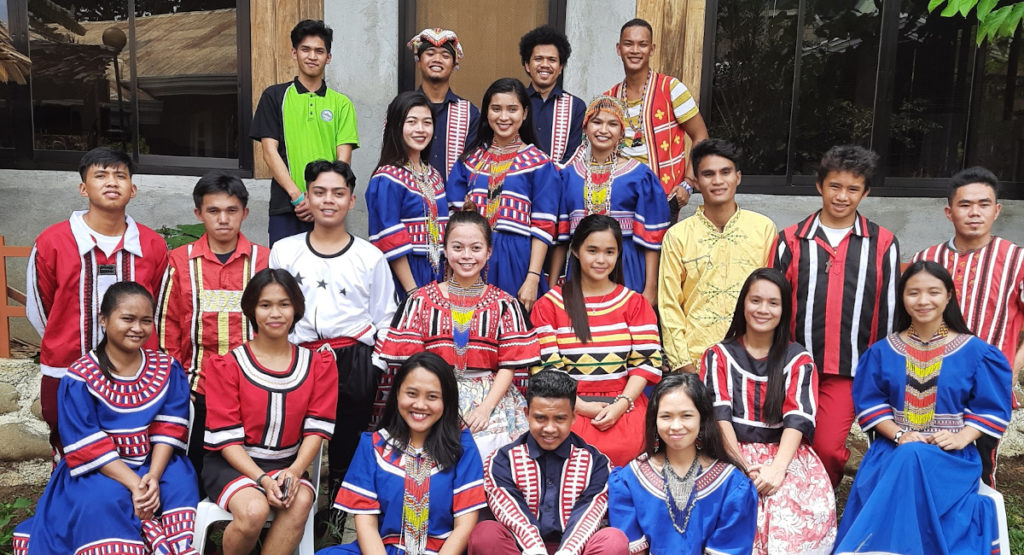
In Bukidnon, the Kapawa hu Paglaum College Scholarship and Formation Programme supports indigenous students as they strive for “self-governance and empowerment, and political, social, economic, and religious inclusion through accompaniment”.
In Chingchuan, while the youth all have the opportunity and resources to complete their education, they are also exposed to the arts through the artistic centres in the village, including the indigenously-designed primary school, a forest arts and crafts village, and the Catholic Church with its mosaics, murals, and stained glass. Thus equipped, they now have to find a way to “advance in society while sustaining and developing their own distinctive culture, to keep their faith in the face of a materialistic society, to preserve their characteristic warmth and hospitality with increasing tourism and opportunities to make money, to find meaning in life when so much has been given to them.” Today, Fr Martinson says, the Ayatal youth “are proud to be what they are. They have come a long way, and it has not been without struggle.”
The gifts from the JCIM online gathering were not in the form of material things. But the participants took home insights with far greater value. “The Christmas encounter made me believe that there is still a thriving fervour of love within the indigenous youth towards one’s tribe, one’s community,” shared Ereca, an agriculture student from the Manobo tribe. Needheart, a sociology major from Bukidnon State University, said: “Sharing with the indigenous youth across Asia Pacific is one of the most memorable moments for me. It reminded me of God’s love for us that is undeniably unending and big.”
If you would like to help the students through the Kapawa hu Paglaum College Scholarship and Formation Programme, please visit this link for more information.
From fear to great joy
This celebration of Christmas is particularly different, and probably strange for some people. It feels more like a very long Advent rather than a Christmas celebration that we customarily do. But if Christmas means an authentic encounter with the birth of the Lord in our world today, then, there is an invitation to discern and follow the voice of the angel as the shepherds experience for themselves.
In Luke’s account of the birth of Jesus, the angel says to the shepherds who are struck with great fear: “Do not be afraid; for behold, I proclaim to you good news of great joy that will be for all the people.” In this familiar story, the shepherds, one of the most marginalised sectors of Jewish society, are the first to hear of the good news. Strangely enough, they find the infant who is both Messiah and Lord “wrapped in swaddling clothes and lying in a manger”. This image of fragility is very significant and powerful for our time, and especially for the most vulnerable among us. God enters into the depths of our humanity and frailty. Christmas is a season of hope. There is no place for fear or despair when we admit our vulnerabilities. Fear should give way to the hope that God remains with us even during this time of insecurity, joblessness, hunger, natural calamities, sickness, and death. Not even the saddest and most painful moments of human history can take away the consoling presence of our God-made-human.
Let us be like the shepherds, eager to find Jesus wherever he is. Let us learn from them as they radiate joy after their encounter with the infant. They see blessings despite the many challenges in life. For indeed, God is truly present amid the uncertainties, and struggles of humanity and creation.
Blessed Christmas to one and all!
Tony Moreno SJ
President, Jesuit Conference of Asia Pacific
Society of Jesus donates surgical N95 masks to aid healthcare workers in Hubei province battling COVID-19
The Society of Jesus has donated 1,800 surgical N95 masks to Jingzhou No 1 People′s Hospital in Hubei province.
Jesuit Superior General Fr Arturo Sosa SJ approved the donation, which was coordinated and arranged by The Beijing Center for Chinese Studies (TBC), the Jesuit education centre and intellectual hub operating in mainland China since 1998.
“The Society of Jesus is a Society of solidarity. This small gesture is a symbol of that wide and deep solidarity,” said Fr José Magadia SJ, General Counsellor and Regional Assistant for Asia Pacific.
Earlier this month, Chinese authorities said there is an urgent need for medical supplies, including surgical N95 masks. These masks offer better protection than regular surgical masks and are designed to prevent 95 per cent of small particles from entering the nose and mouth area.
Though not prominently appearing in international media, Jingzhou city, located about 220 kilometres (137 miles) west of Wuhan, has been greatly affected by the COVID-19 outbreak. The disease has killed more than 2,996 people and infected over 87,728 globally.
With over a thousand infected in Jingzhou city alone, healthcare workers are grappling with certain medical supplies shortages. TBC has been in direct contact with Jingzhou No1 People’s Hospital, confirming the serious need for surgical N95 masks. The centre ensured the delivery of the masks, which arrived from Canada, to the hospital’s healthcare workers.
“TBC is honored to be the facilitator and platform connecting the Jesuits to mainland China. We thank the Society for the generous donation and continued support during this challenging time,” said TBC Executive Dr Simon Koo.
“It is our privilege to support your meaningful mission with our humble donation,” said Chinese Jesuit Provincial Fr Stephen Chow SJ to the healthcare workers. He assured them of the Society’s earnest prayers and told them: “Please stay safe and healthy for your loved ones and your mission.”

